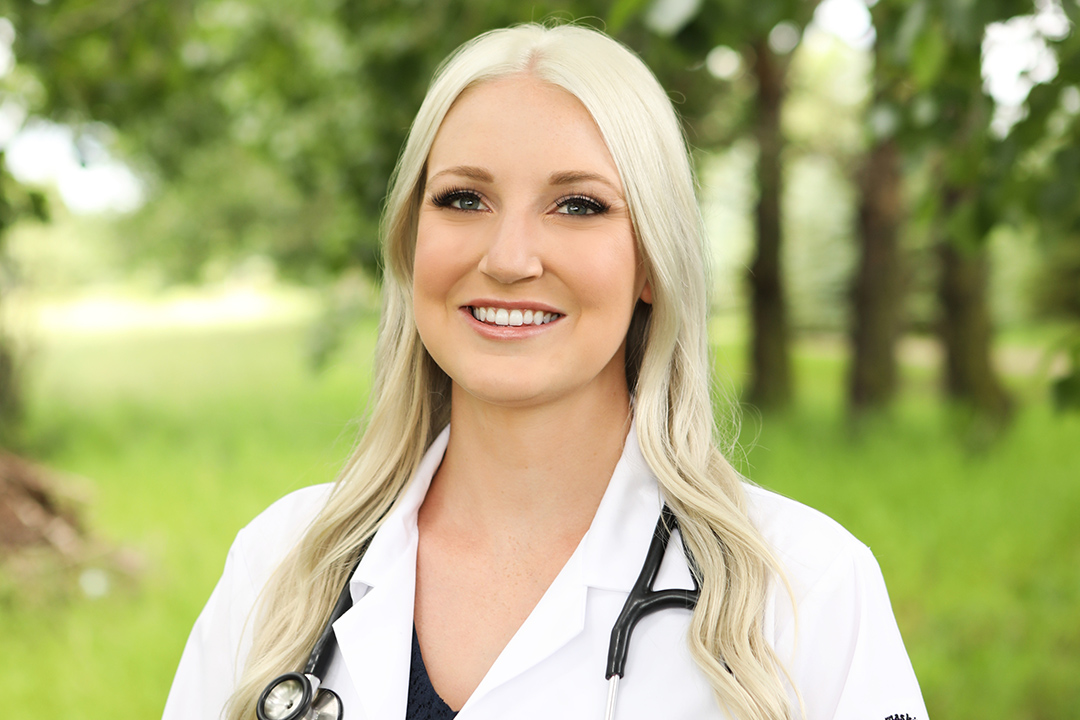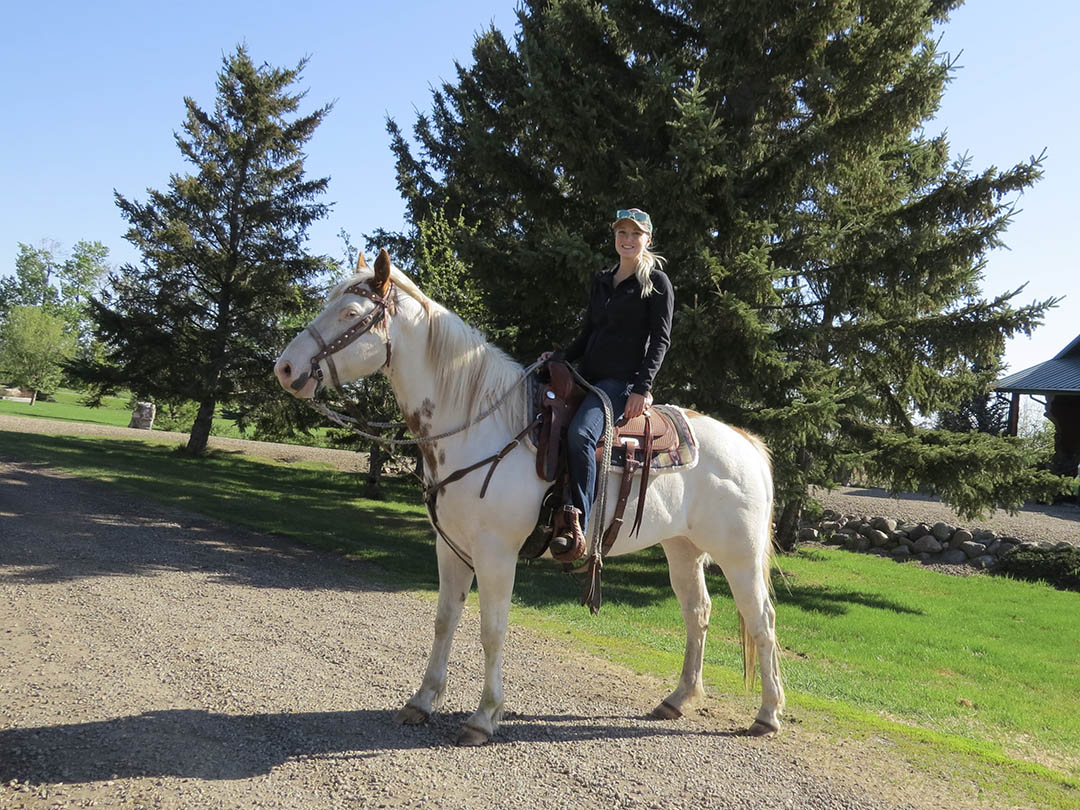
USask Métis student celebrates MD degree on family farm
Like any student in their last year of medical school, Métis student Lacey Jurke has been keeping busy—though not in the way she had envisioned.
By Kristen McEwenInstead of completing her fourth year at the University of Saskatchewan (USask) campus in Saskatoon, the COVID-19 pandemic required Jurke to complete her classes online at the family farm near Maidstone, Sask., where she has also been helping to deliver hundreds of calves and piglets.
“I’ve been really lucky to be busy and have work to do and to be around my family,” Jurke said. “It’s been nice to be at the farm as the work that we do is not so much affected by the pandemic. During calving time, I’m just as busy as I am in medical school.”
Throughout the month of April, students in their last year of medical school usually finish the last four weeks of classes to prepare for the licensing exam that marks the end of their medical school career.
“It’s been kind of tough,” Jurke said. “We’re uncertain and don’t know when we will be able to write the exam—maybe summer or fall.”
Like the other members of USask’s Class of 2020, Jurke won’t be able to attend a convocation ceremony this spring due to the ongoing pandemic, but hopes to celebrate with her classmates at some point in the future. Traditionally, convocation serves as a time for medical students to reflect on their achievements before starting residency programs, which Jurke is now looking forward to.
“Graduation was cancelled, which was really sad,” Jurke said. “I’ve been going to university for eight years, and I was looking forward to celebrating with my classmates, many of whom I haven’t seen for months before we all go off to residency in different provinces. I was also looking forward to having my family come to Saskatoon to the graduation banquet.
“Although there is a lack of closure at the moment, I hope we will be able to come together to celebrate this milestone in the future when it is safer to do so,” she added.

Jurke hadn’t initially considered becoming a doctor—at least not for humans. Coming from an agricultural background, she intended to apply for veterinary medicine, enrolling in the College of Agriculture and Bioresources and ultimately completing a degree in animal bioscience.
“Being a vet wasn’t the career I envisioned myself doing, but it’s something you get told to do when you’re a farm kid and like science,” Jurke said. ”In my veterinary anatomy and physiology classes, I always found myself studying the human equivalent in my spare time, due to interest.”
Jurke met a couple of students who were in medical school and realized it was an option for her to apply as well. Once in medical school, Jurke found that she had to adjust to the workload that medical school demands in first year, hours spent memorizing and studying information. Her third year proved to be another adjustment as students find themselves in clerkship, spending time in hospitals and on call.
“My favorite year of medical school was fourth year because I was able to travel across the country doing electives I was interested in and was able to spend more time with patients,” Jurke said.
As a Métis student, Jurke also had the opportunity to be a mentor for younger students in the College of Medicine.
“I’m really proud to be an Indigenous student,” Jurke said. “The College of Medicine does a fantastic job supporting Indigenous applicants and current students. The more Indigenous students we have, the more we can help the Indigenous community and give back.”
Article re-posted on .
View original article.
